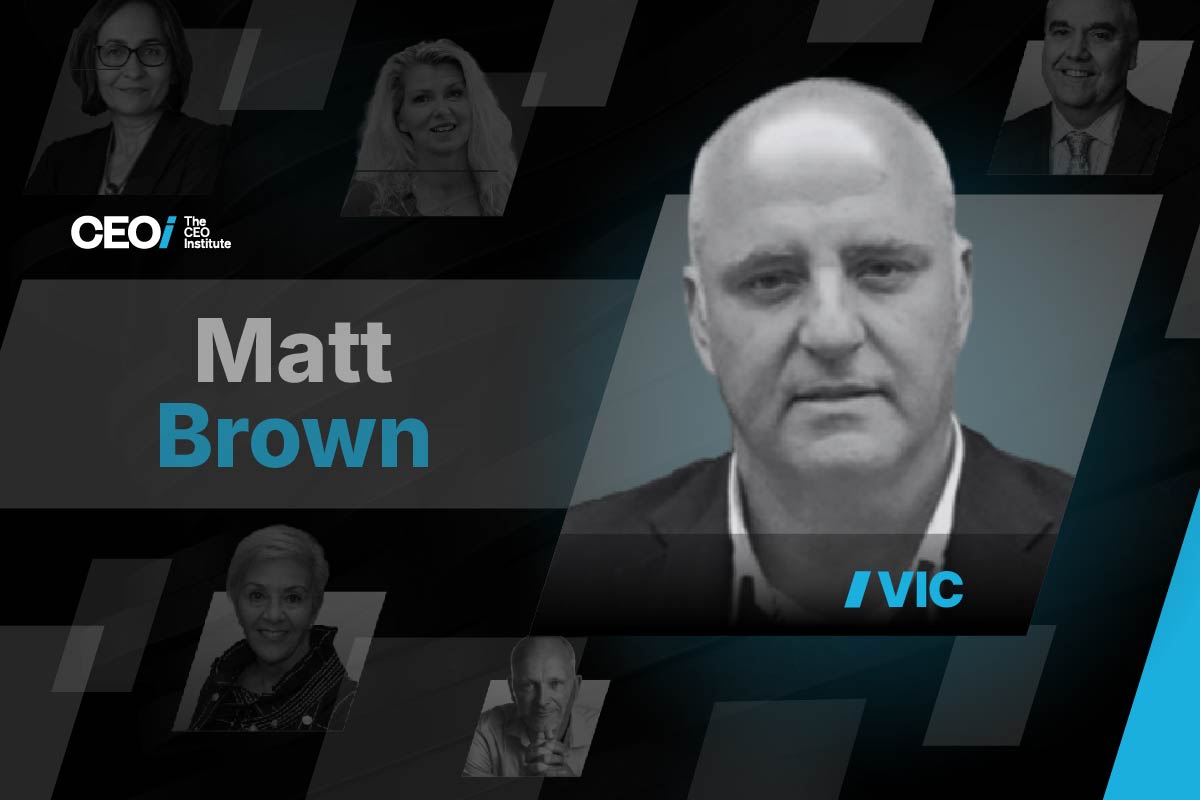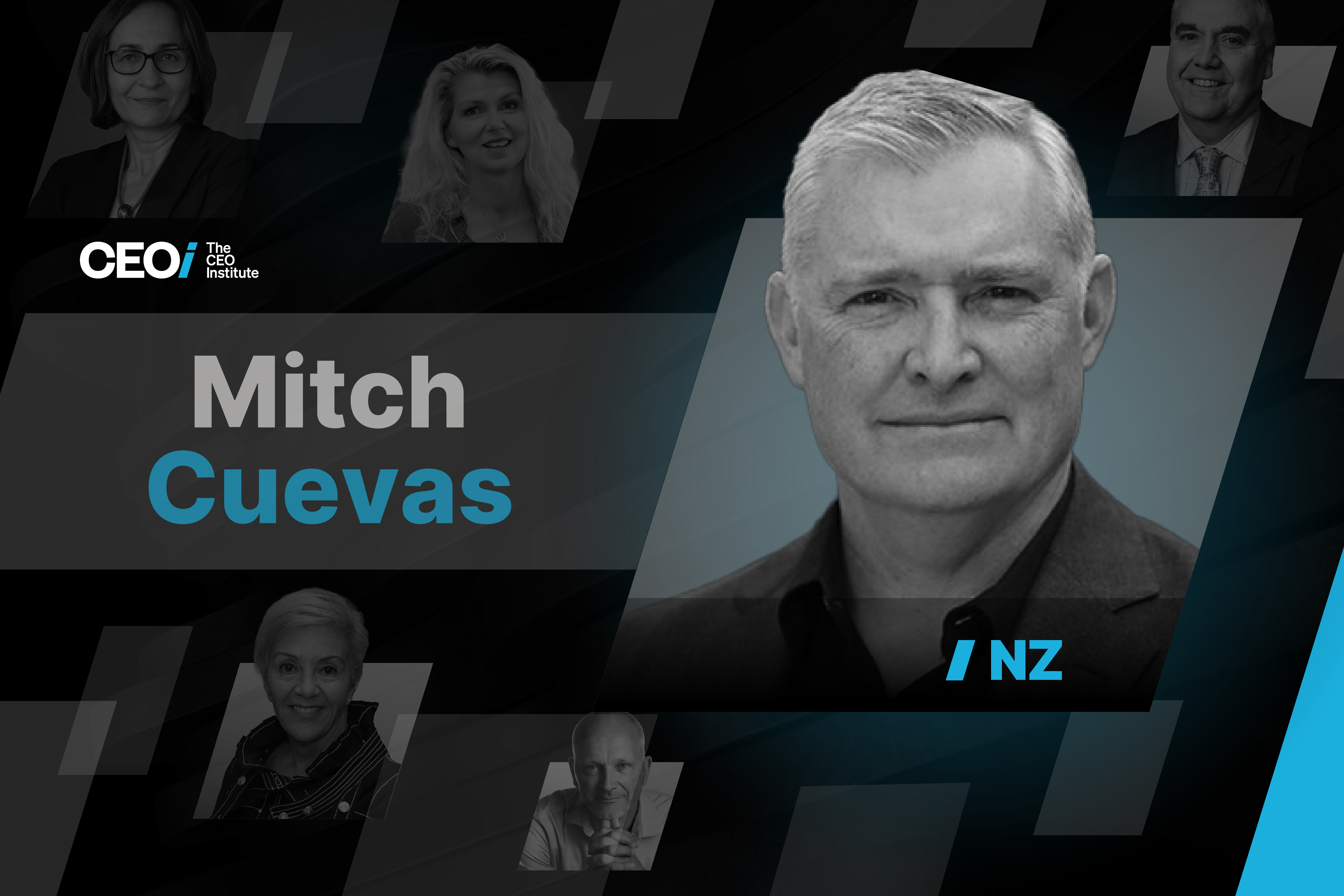Chair Case Study
Today in our Chair case study, we speak with Karen Rolleston. Karen brings deep experience as a CEO, entrepreneur, and governance leader, with a...

Matt Brown brings a wealth of experience as Chair of multiple CEO Syndicates at The CEO Institute. With a career spanning commerce, chartered accounting, and investment through his company Holus Capital, Matt has channelled his passion for business and people into guiding CEOs on their leadership journeys. For the past eight years, he has created an environment where leaders can collaborate, share diverse perspectives, and feel supported in the often-isolated role of CEO. His story reflects the positive energy, growth, and community that come from being part of The CEO Institute
Can you share a brief overview of your professional background and what led you to become a Chair for the CEO Syndicate?
A conventional background of Commerce at Melbourne Uni, Chartered Accounting, combined with eclectic business experiences eventually led me to establish an investment company, Holus Capital. Having sold down its investments I was taking some “family time”, coaching my son’s football team. One of the dads, who worked at the CEO Institute, asked me if I would be interested in joining them.
I have always loved business, helping people with their journey, so I jumped at the opportunity. That was 8 years ago and I am still loving it.
What motivated you to work with The CEO Institute, and how does the role of Chair align with your personal and professional values?
Helping people with their business journey is very rewarding. Watching CEOs collaborate with one another, sharing experiences and advice, culminating in positive energy and results makes me feel good. I like to be involved with communities and help people where possible - being involved with the CEO Institute is an extension of that.
In your experience, what are the core qualities of a successful business leader, and how do you foster these in your syndicate sessions?
I note the question refers to “business leaders”, not CEOs. Such leaders permeate throughout businesses and aren’t just confined to the C suite. In my view, successful leaders galvanise their teams towards a common goal with maximum effect. It involves harnessing the energy of the group to achieve that objective. Such goals may or may not be profit oriented.
To do so effectively, the best leaders communicate their purpose well and create environments where people feel safe to contribute, express their views, argue their case, challenge and be curious. They encourage diversity of thought, give team members a sense of belonging to something worthwhile and manage the processes well. The resulting energy is a very positive and contagious culture. Good business leaders do this for their teams. Great CEOs do this for their company.
I try to embrace the same philosophies within the syndicates.
In what ways do you see The CEO Syndicate positively impacting the personal and professional lives of its members?
Being a CEO can be very lonely. They are supposed to “know everything” and often have little support networks. Being a member of a syndicate provides them with such a network and enables them to seek guidance and support from other CEOs in a safe yet challenging environment.
How do you stay informed on current business trends and issues, and how do you integrate this knowledge into your sessions?
As an investor, I read a lot – ASX investor presentations, company analysis, industry reports, books etc. I also try to evolve my approach to business practices by questioning and updating my investment framework. I like to look for good practices that public companies use and see if they are applicable to private businesses.
If I feel an approach is relevant and could add value, I will put forward a scenario for discussion.
How do you balance providing guidance with encouraging business leaders to find their own solutions to business challenges?
At each meeting I always ask members to raise specific problems / opportunities that they would like input with. All members contribute their thoughts and suggestions. As the conversations evolve, I may narrow in on a particular nuance and seek the thoughts of the CEOs. I try to use my experience to promote discussion and thought so they can find their own solutions, rather than providing advice what they should they do.
Can you share a time when a CEOs feedback about the syndicate positively influenced your approach as a Chair?
I recall separate instances when three members were having some serious struggles, professionally and personally. The empathy and support provided by the groups was heartwarming and emphasised the benefits of belonging to a like-minded support network of peers.
What lasting impact do you hope to leave on the CEOs you work with through The CEO Institute?
First and foremost, I’d love members to say they loved their time at the Institute. Loved the members they met, learned a heap, felt supported, made business fun again, developed personally and professionally and increased the value of their business.
If I can contribute to that I will be very happy.

Today in our Chair case study, we speak with Karen Rolleston. Karen brings deep experience as a CEO, entrepreneur, and governance leader, with a...

In our latest Chair case study, we speak with Gorana Saula. With over 25 years of international executive and board experience spanning defence,...

In our latest Chair case study, we speak with Mitch Cuevas, an experienced executive and governance leader who brings a personal passion for CEO peer...